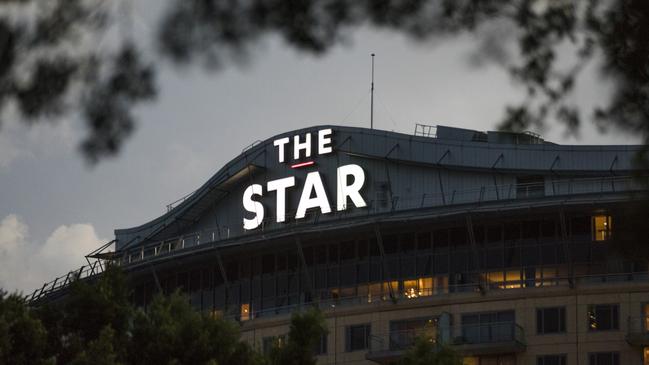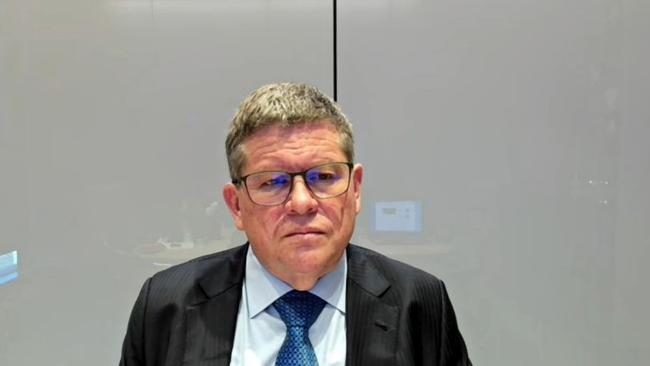
Cooke, who stepped down last month, was peppered with questions about a disagreement on the timing of a senior executive’s resignation; questioned about how he followed up over a conference room booking; and was thoroughly interrogated over his motives querying a financial line item during the preparation of earnings results.
It was all about sweating the small stuff and hardly the revelations from the first Bell inquiry that sensationally uncovered crooks with bags of cash, secret gambling rooms and misleading banks about source of funds.
However, the context is important and Cooke’s appearance came after days of carefully selected witnesses building the reputational plank for the former CEO to walk off.
Correctly, Cooke declined to follow.

This was the first time Cooke has spoken since the rapid end to his 16 months of trying to financially rescue The Star casino and rebuild its culture. He also provided some insight into the broader external pressures faced by the business.
And given the stated aim of the inquiry was to examine the suitability of Star in retaining its Sydney casino licence, not one of the highly paid barristers leading the probe even bothered asking the former CEO about what was going on in the gaming room floor, or even tried to understand the challenges Star still faces.
Instead, it was a parade of half-baked gotcha moments which looked liked an inquest into office politics.
It beggars belief when you consider the immense investigative powers that come with a royal commission-style inquiry, and Sydney’s top silks are being used to get to the bottom of who booked a conference room and who said what to who inside Star’s Union St headquarters at Pyrmont.
NSW Gaming Minister David Harris needs to start asking whether the millions in taxpayer dollars should have been better spent elsewhere. If he doesn’t, this will surely come back on him.
A private text exchange between Star’s chairman, David Foster, and Cooke – not disparaging but joking “they are up to something” or “the fireworks will be bright and loud” – is hardly the stuff of scandal which should be used to drag down reputations and put thousands of jobs and investment at risk.
Nor is it whether a resignation letter from a senior executive was personally handed to the CEO or not. (Cooke strongly disputes this happened, saying if it had been, he would have acted on it).
The intensive questioning of Cooke on matters of administrative minutiae has dangerous parallels to what Woolworths chief executive Brad Banducci faced last week during a Senate hearing when a Greens senator swore at him and threatened to put the supermarkets boss in jail. That was no joke. Neither is this.
The picture that has emerged in recent days is that Cooke resigned from the post last month after the NSW casino regulator privately told The Star board in December it had lost confidence in the CEO.

The message was delivered to the board though NSW Independent Casino Commission boss Philip Crawford, who had complained that Cooke was arrogant, not listening, and not moving fast enough.
Initially the casino’s board stood behind the CEO, but the writing was on the wall when Cooke – with the blessing of the board and Foster – defended himself over a report prepared on behalf of the regulator that savaged Star’s efforts to reform and drive cultural change.
This approach went down badly with the NSW Independent Casino Commission which took the nuclear option and called another inquiry into Star. Cooke was gone weeks later.
Cooke says he had asked the board to come to a view to “make the decision to separate”
him from Star. “I did not think my continuation in the role would actually be conducive to the business returning to suitability,” Cooke says.
A major piece of work under way in Cooke’s first six months was around resetting culture and the values of Star’s staff. This was running in tandem with raising nearly $1bn from investors for a financial rescue, while a new casino tax levied by NSW threatened to collapse the earnings of the business.
Cooke says Star was faced multiple issues from the beginning of his tenure, but he wasn’t prioritising one at the cost of resetting the culture.
When the collective decision was made to respond to the criticism raised in the special manager’s report, Cooke knew what was at stake. He told his board that “we were going down a one-way street”. He also revealed he was not a “particularly comfortable” with the position he had taken to respond to the report, but this was done in a “clinical” and non-emotive way.
“I did try to write the response and the covering letter in a way which indicated we were doing it respectfully and trying to ensure that whether matters that we didn’t agree with or that were contentious,” he said.
This shows it was a collective and considered approach to the demands being placed on the company by the NSW casino regulator. In its efforts to not antagonise the regulator, Star was seriously grappling with how to respond to what it saw as a case of regulatory overreach.
Cooke concedes by responding that this was a difficult position for Star Entertainment to take. “We were taking a contrary position to the (special) manager and some of his views of the company, so I did appreciate that it was kind of had some challenges around it,” he said.
Lead counsel Caspar Conde put to Cooke that this “was an entirely inappropriate approach”.
Cooke disagreed: “There were things that needed to actually be addressed. And I’ve got to say I don’t know how else the company could have dealt with it.”
Conde then described Cooke’s approach as “not being co-operative with the regulator”.
Again, the former CEO disagreed. “It’s trying to be co-operative with the regulator and trying to do this in a respectful way,” he said He added this was part of the communications between the board and the regulator, and he was also careful to not involve his executive team so as to not affect their interaction with the regulator.
And then Cooke, who over the decades has worked in regulated industries from gaming to banking for most of his executive career, offered an insight into the complex relationship between the regulators and the companies they oversee.
“Interacting with the regulator …(it) is very important how you do that. And sometimes you do have to take a position and that is often difficult. And often can cause issues. So it’s not easy to take that position and then reverse out of it,” he said.
In Star’s case, it is clear there was zero tolerance for a robust dialogue between the casino and the NSW Independent Casino Commission. The key reason behind this was that trust was lacking on both sides of the relationship and that in itself is also a sign of deeper regulatory failings.
How it got like this is a line of inquiry worth pursuing – not office politics.
johnstone@theaustralian.com.au




Former The Star chief executive Robbie Cooke was subjected to four hours of questioning about his short time at the casino and by the end of it there was no smoke – and not even a pop gun.